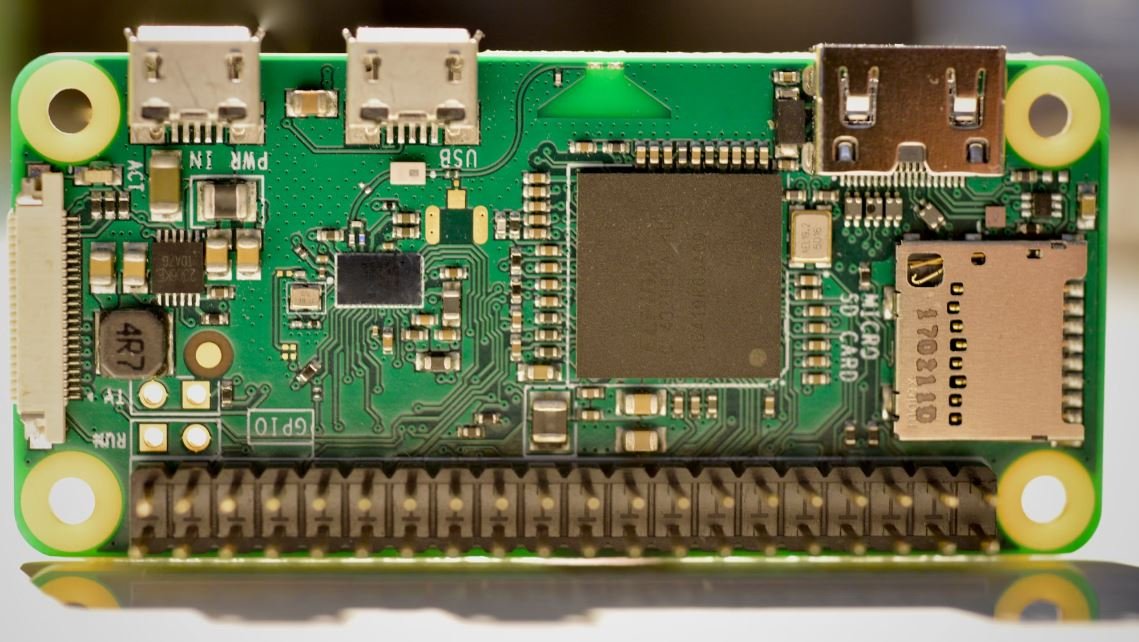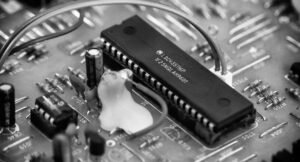AI Is Not a Threat to Humanity
Artificial Intelligence (AI) is a rapidly advancing field of technology that is enhancing many aspects of our lives. Despite some concerns and misconceptions, AI is not a threat to humanity. It has the potential to revolutionize industries, improve efficiency, and drive innovation.
Key Takeaways
- AI is a tool designed to assist humans, not replace them.
- AI has shown remarkable advances in fields such as healthcare and automotive industries.
- Ethical frameworks and regulations are being put in place to ensure responsible AI development and usage.
- Human oversight and intervention play a critical role in AI systems.
**AI serves as a powerful tool in various fields, improving productivity and efficiency.** It can automate repetitive tasks, analyze vast amounts of data, and provide valuable insights. In industries like healthcare, AI assists doctors in diagnosing diseases and creating personalized treatment plans. In the automotive sector, AI is utilized to develop self-driving cars, reducing accident rates and enhancing transportation systems.
*AI systems are designed to collaborate with humans, not replace them. By leveraging AI technologies, humans can concentrate on more complex and creative tasks, leading to an overall increase in productivity.*
**AI development is being guided by ethical considerations and regulations.** Governments and organizations worldwide are working together to establish frameworks that ensure the responsible deployment of AI. Fairness, transparency, and accountability are essential principles driving the development and usage of AI technologies. This approach safeguards against biased decision-making and protects against potential harm caused by AI systems.
Benefits of AI in Various Fields
AI is transforming numerous industries, unlocking new possibilities and enabling advancements that were previously unimaginable. Here are some key areas where AI is making a positive impact:
| Field | Benefits of AI |
|---|---|
| Healthcare |
|
| Finance |
|
*AI advancements are revolutionizing healthcare, offering improved diagnosis and personalized treatments, while also benefiting financial sectors with more accurate fraud detection and providing efficient customer service through the use of chatbots.*
**Human oversight and intervention are crucial components of AI systems**. While AI can process and analyze massive amounts of data at incredible speeds, it requires human guidance. Humans craft the initial algorithms and continually monitor and guide AI systems to ensure they align with ethical guidelines and produce desired outcomes. This collaboration between humans and AI fosters a symbiotic relationship that leads to enhanced decision-making and problem-solving.
Surprising Facts about AI
Here are three interesting data points that highlight the incredible capabilities and potential of AI:
| Fact | Description |
|---|---|
| Fact 1 | AI technology can analyze millions of medical records in seconds, helping physicians make accurate diagnoses. |
| Fact 2 | AI-powered virtual assistants can understand natural language, making human-computer interactions more seamless and intuitive. |
| Fact 3 | AI algorithms can predict customer behavior, allowing businesses to personalize advertisements and improve customer satisfaction. |
*AI’s ability to analyze massive amounts of medical data within seconds enables physicians to make quicker and more accurate diagnoses, improving patient outcomes.*
In conclusion, AI is not a threat to humanity but rather a powerful tool that has the potential to revolutionize industries, improve efficiency, and drive innovation. With the appropriate ethical frameworks, regulations, and human oversight, AI can be harnessed to benefit society in numerous ways. By embracing AI and leveraging its capabilities, we can enhance our lives and create a better future.

Common Misconceptions
AI is not a Threat to Humanity
Artificial Intelligence (AI) is a technology that has gained significant attention in recent years. However, there are several misconceptions surrounding AI that often lead to fear and anxiety about its potential impact on humanity. It is important to address and debunk these misconceptions to have a better understanding of the true nature of AI.
Misconception 1: AI will take over human jobs
- AI technology is designed to assist and augment human capabilities, not replace humans.
- While certain tasks may be automated by AI, new jobs and opportunities will arise as AI technology advances.
- Collaboration between humans and AI can lead to increased productivity and efficiency in various industries.
Misconception 2: AI will have its own consciousness
- AI systems are programmed to follow predefined algorithms and patterns, lacking consciousness and self-awareness.
- AI technologies function based on data and models, without the ability to think, feel, or have desires.
- AI systems do not possess intentions or motivations as humans do.
Misconception 3: AI will become uncontrollable and surpass human intelligence
- AI systems are designed with strict limitations and boundaries set by human programmers.
- AI operates within its programmed capabilities and cannot go beyond those limitations.
- AI systems do not have the ability to self-improve or acquire new knowledge without human intervention.
Misconception 4: AI will cause harm and pose a danger to humanity
- AI technology is developed with ethical considerations and regulations in place to ensure its responsible deployment.
- Most AI applications are focused on improving human lives and addressing societal challenges rather than causing harm.
- AI systems are extensively tested and monitored to minimize the chances of accidents or unintended consequences.
Misconception 5: AI will lead to a dystopian future depicted in science fiction
- Science fiction often portrays extreme scenarios that are far from the reality of AI technology.
- The development and deployment of AI follow a responsible and controlled approach, guided by ethics and regulations.
- The AI community actively works towards ensuring transparency, accountability, and fairness in AI systems.

In today’s world, AI has become an integral part of our daily lives. From virtual assistants to personalized recommendations, AI technologies have enhanced our experiences in various domains. This table highlights some common applications of AI in everyday life and showcases how AI has seamlessly integrated into our routines.
Digital Assistants | Smart Home Devices | Music Streaming | Online Shopping | Transportation |
—————- | ——————— | ————– | ————— | ————— |
AI-powered virtual assistants like Siri, Alexa, and Google Assistant have become our go-to helpers. They can answer questions, set reminders, and perform tasks through voice commands. | Smart home devices, such as thermostats, lights, and security systems, are now equipped with AI capabilities that allow for automation and control through voice commands or mobile apps. | Music streaming services analyze user preferences and behaviors using AI algorithms to offer personalized playlists and recommendations for an enhanced listening experience. | AI algorithms have revolutionized online shopping by providing personalized recommendations, instant customer service through chatbots, and fraud detection mechanisms for secure transactions. | AI is transforming the transportation industry with autonomous vehicles, traffic management systems, and ride-hailing platforms, improving safety, efficiency, and reducing congestion.
Medical Diagnostics | Weather Predictions | Speech Recognition | Personalized Ads | Content Recommendations |
—————– | —————– | —————- | —————- | ———————– |
AI assists doctors in diagnosing diseases with greater accuracy by analyzing medical records, symptoms, and test results. This enables early detection and improved treatment outcomes. | Weather predictions have seen significant improvements due to AI algorithms that analyze large sets of meteorological data. This allows for more accurate forecasts, aiding in disaster preparedness and planning. | Speech recognition technology, powered by AI, has made voice commands possible in our smartphones, making it easier to interact with devices hands-free and enabling voice-to-text functionalities. | AI enables personalized advertisements by analyzing individual preferences, browsing history, and demographic data. This targeted advertising approach benefits advertisers and users by offering relevant products or services. | AI algorithms analyze user behavior, content preferences, and social interactions to provide tailored content recommendations in platforms such as social media, news apps, and streaming services.
Financial Services | Gaming | Language Translation | Image Recognition | Fraud Detection |
—————- | —— | ——————– | —————– | ————— |
AI algorithms are widely utilized in the financial sector for tasks such as credit scoring, fraud detection, and algorithmic trading, enhancing efficiency, accuracy, and security in financial services. | AI has transformed the gaming industry with realistic game simulations, intelligent opponents, and immersive virtual reality experiences, creating more engaging and enjoyable gameplay. | Language translation tools, like Google Translate, employ AI techniques to accurately convert text or speech from one language to another, breaking down language barriers and facilitating communication. | AI-powered image recognition systems excel at identifying objects, faces, and scenes in images or videos, enabling various applications like facial recognition technology, autonomous driving, and content moderation. | AI algorithms can detect patterns and anomalies in large volumes of data, facilitating fraud detection in areas such as credit card transactions, insurance claims, and online scams.
In conclusion, AI has become an influential and pervasive part of our lives, improving and enriching various aspects of our everyday routines. From healthcare to entertainment, AI technologies have consistently demonstrated their value. As we continue to embrace these technologies, it is crucial to ensure responsible and ethical development and deployment of AI to maximize its potential benefits while safeguarding against potential risks.
Frequently Asked Questions
Why do some people believe that AI is a threat to humanity?
Some individuals are concerned about the potential negative impact of AI on society due to its ability to automate tasks traditionally performed by humans. There are also fears about AI surpassing human intelligence and potentially becoming uncontrollable or malevolent.
What is the current state of AI technology?
AI technology has made significant advancements in recent years, allowing machines to perform complex tasks such as image and speech recognition, natural language processing, and machine learning. However, AI is still far from possessing human-like general intelligence.
Can AI become dangerously autonomous?
While AI can be designed to operate autonomously, its level of autonomy is always determined by human programmers and designers. AI systems are created with specific goals and limitations and do not possess the capability to act beyond their programmed capabilities.
Are there any ethical concerns associated with AI?
Yes, the development and use of AI raise important ethical considerations. These include issues of data privacy, algorithmic bias, job displacement, accountability, and the potential for AI systems to reinforce social inequalities.
What role can AI play in improving society?
AI has the potential to positively impact society in various domains. It can be utilized to enhance healthcare, optimize transportation systems, advance scientific research, improve environmental sustainability, and assist in disaster response, among other applications.
Will AI replace human jobs in the future?
While AI may automate certain tasks, it is unlikely to completely replace humans in the workforce. Instead, AI is more likely to augment and collaborate with human workers, enabling them to focus on more complex and creative aspects of their jobs.
How can AI be regulated to ensure ethical use?
Regulating AI requires a multidimensional approach that takes into account concerns such as privacy, transparency, accountability, and fairness. Governments, industry organizations, and researchers are actively working on developing frameworks and guidelines to regulate AI technologies.
What are the benefits of AI in healthcare?
AI has the potential to revolutionize healthcare by improving diagnostic accuracy, enabling personalized treatment plans, enhancing medical imaging analysis, and significantly reducing healthcare costs. It can assist doctors and clinicians in making more informed decisions and providing better patient care.
Can AI be biased or discriminatory?
AI systems can inherit biases from the data they are trained on, potentially leading to discriminatory outcomes. It is crucial to carefully design and train AI models to minimize these biases and ensure fairness and equity in their decision-making processes.
Is there a risk of AI becoming superintelligent and surpassing human intelligence?
While some experts speculate about the possibility of superintelligence, it remains a theoretical concept. The development of superintelligent AI raises numerous philosophical and technical challenges that are yet to be fully understood or realized.




